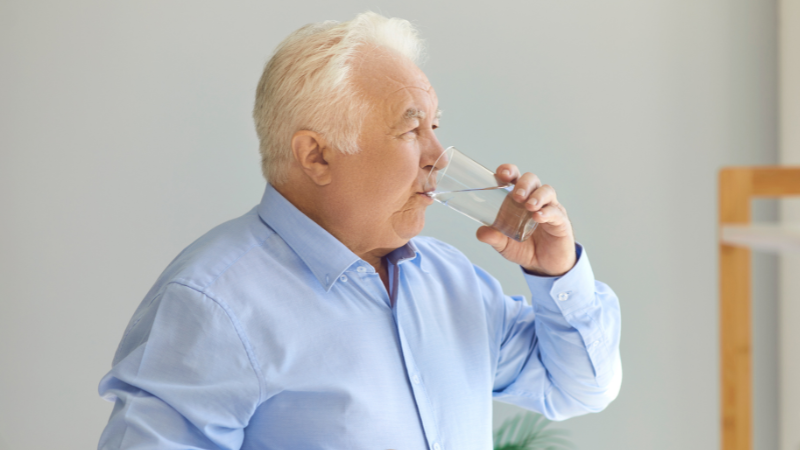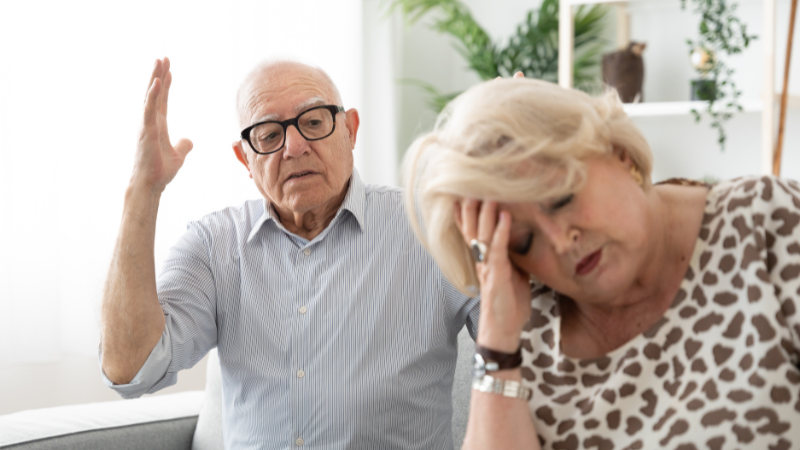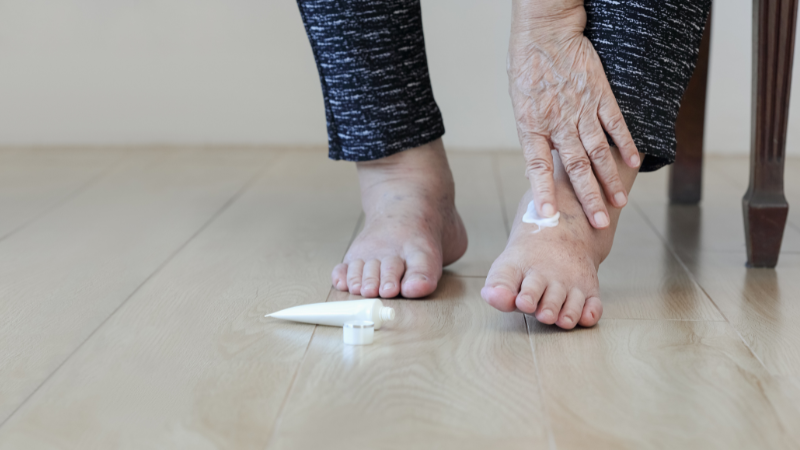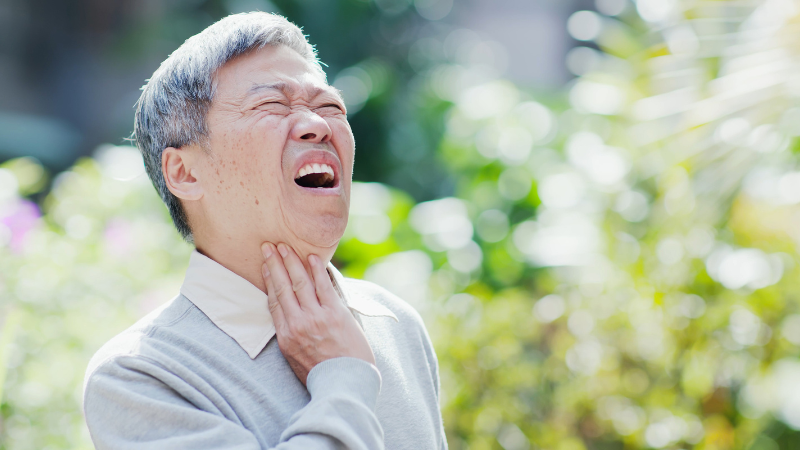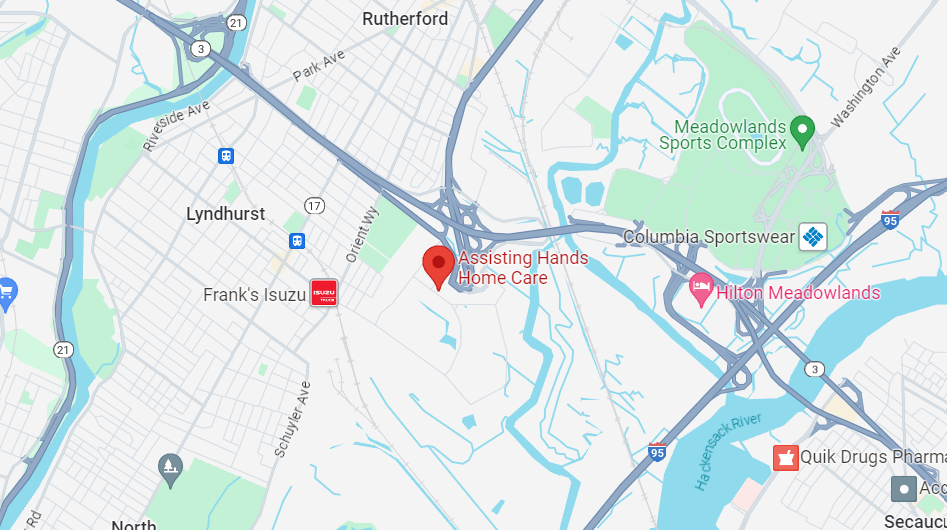Water is a source of life and the key to health. Seniors who are well-hydrated maintain better physical health and cognition. But dehydration, which is common among the elderly, can easily cause them to experience disorientation and symptoms that mimic dementia.
Why is drinking water important?
Staying hydrated by drinking water or other beverages serves many crucial purposes. Water is necessary to regulate body temperature, lubricate joints, and prevent infections. Staying hydrated is involved in the process of delivering nutrients to cells and keeping the body’s organs functioning well.
Older adults who stay well-hydrated experience improved sleep at night. Their cognitive functioning remains at an optimal level in comparison to older adults who are dehydrated. Plus, seniors’ moods are enhanced when their bodies receive the hydration needed to function.
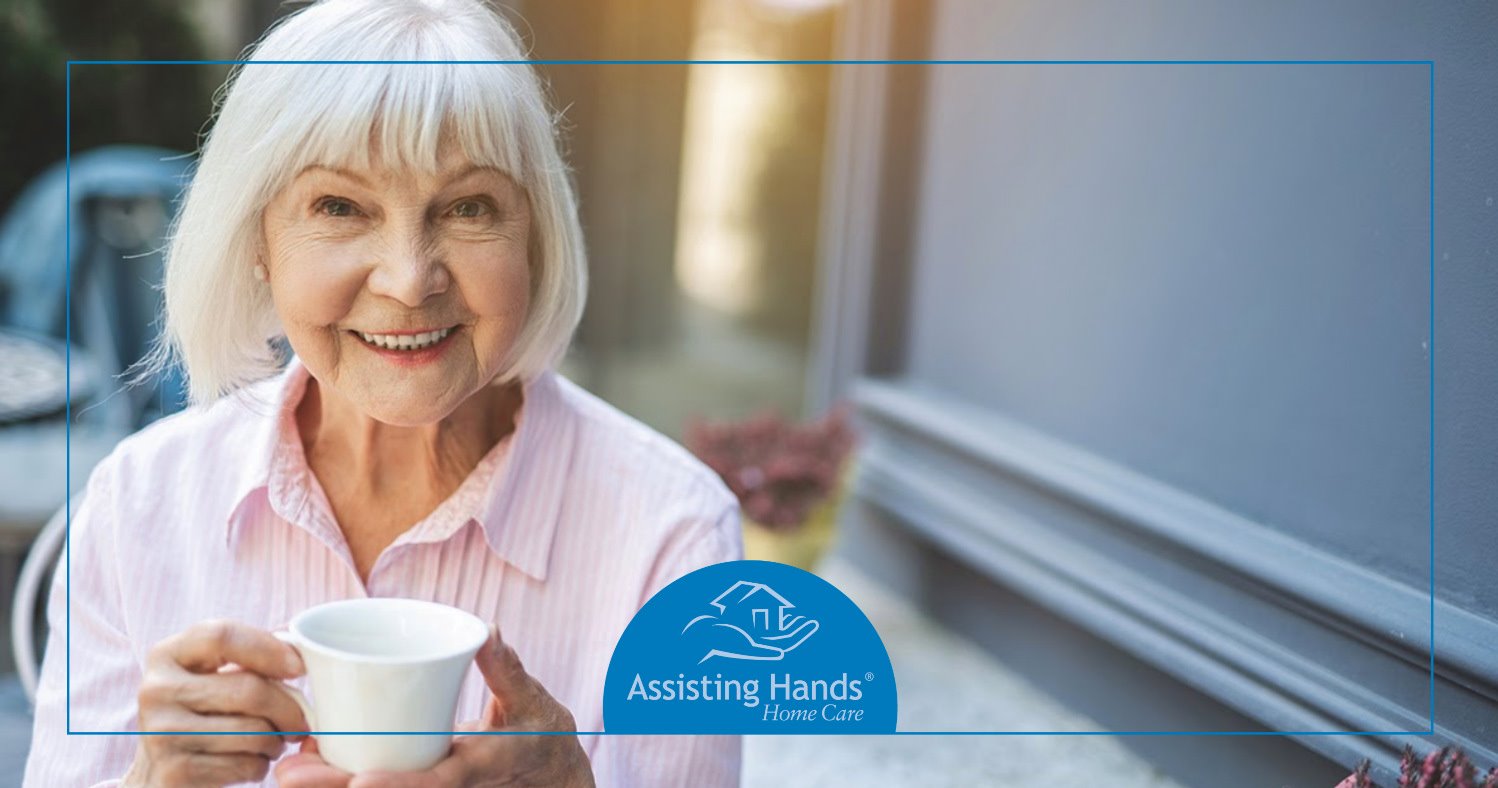
Why do some seniors become dehydrated?
Dehydration is prevalent among the older population due to several age-related reasons. Seniors experience a decreased sense of thirst, meaning they are unaware that they need to drink water. Cognitive impairment and existing health problems are also contributors to dehydration.
The risk of dehydration increases in seniors who take certain prescription medications. Diuretics and drugs used in chemotherapy, for instance, increase the chances of dehydration through the loss of fluids from urine and bodily sweat. Drugs that cause diarrhea and vomiting also leave seniors dehydrated.
Immobile seniors may find it difficult to move around the home, which makes reaching for a glass of water or other beverage a challenge. Decreased mobility is a hurdle to adequate hydration. These individuals may rely on a caregiver to serve them beverages and ensure they stay hydrated.
A common cold, an upper respiratory infection, and other viral conditions worsen dehydration through symptoms, such as sweating, fever, vomiting, and diarrhea. Serious health conditions, like cancer, diabetes, and renal impairment, are also responsible for increasing dehydration in elderly individuals.
Alzheimer’s disease and other forms of dementia cause memory issues. Seniors living with a cognitive impairment are likely to forget how to meet their basic needs, including drinking enough water to stay hydrated. Caregivers can provide reminders, however, to consume beverages.
Can dehydration cause confusion in the elderly?
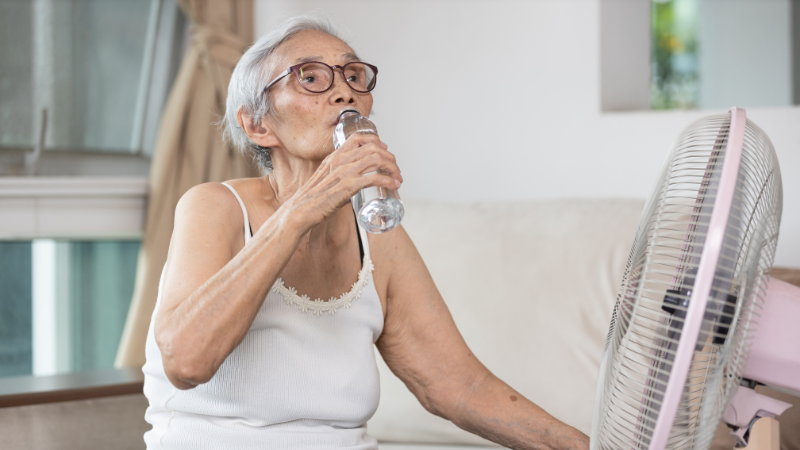
A range of symptoms manifest in seniors who are dehydrated. They experience dizziness, fatigue, or muscle cramps. Their mouth feels uncomfortably dry, and their eyes appear sunken. Dehydration is evident in urine, as it produces dark-colored urine; it also decreases the senior’s urine output.
Additional symptoms of mild dehydration include constipation, dry skin, and a dry, sticky mouth. The senior complains of tiredness, sleepiness, or laziness. They may feel fatigued or lack the energy they usually have. Appetite loss is another sign of mild dehydration.
When older adults are severely dehydrated, severe symptoms appear. Their heart rate becomes rapid, or they experience difficulty walking. Severe dehydration can cause the older adult to faint. Hyperthermia may set in. Disorientation is another symptom of severe dehydration in the elderly.
The lethargy and confusion that arise in older adults who are dehydrated are indications of an imbalance of their electrolytes and fluid levels. These symptoms of dehydration are subtler in comparison to clearer signs, such as dizziness, light-headedness, nausea, and cramping.
Along with experiencing confusion as a result of dehydration, older adults are likely to become uncharacteristically irritable or agitated. Headaches frequently accompany a state of dehydration. The dehydrated elderly person has difficulty making decisions and finds it harder to concentrate.
Medical experts suggest that a major symptom of dehydration is memory loss. Without enough water, the brain is too dehydrated to function at an optimal level. Chronic dehydration can lead to severe health repercussions, which is the reason caregivers are urged to monitor the senior’s water intake.
How much water should seniors drink?
Older adults should consume enough water each day to stay properly hydrated. Roughly 11 cups of water per day is recommended for women and 16 for men. This amounts to older people drinking about two liters of water per day.
While hydration is important, plain water is not the only beverage seniors can drink. Proper hydration can be achieved by consuming water flavored with delicious berries, like blueberries, lemon slices, strawberries, or even cucumbers. Coffee and tea are also ideal beverages.
The key to proper hydration is to opt for healthy beverages. Stay away from sugar-sweetened drinks, like sodas and fruit juices. These types of drinks do more harm than good. Even energy drinks and vitamin waters are not recommended due to being overloaded with sugar.
Caregivers are advised to place a two-liter jug of water in the fridge and ensure their elderly care recipient takes sips of it throughout the day. This ensures they stay adequately hydrated and avoid the health consequences of dehydration. It’s the simplest way to prevent dehydration-related confusion.
When the senior in your life experiences confusion, it may be due to dehydration. Or, it could be a symptom of dementia. If it is the latter, Assisting Hands Home Care is prepared to support your aging loved one with our compassionate, in-home memory care services.
Our dementia care services are non-medical in nature yet comprehensive. Services include help with hygiene tasks, healthy meal preparation, grocery shopping, and light housekeeping. Caregivers ensure care recipients remain properly hydrated by serving water and other beverages throughout the day.
Dementia caregivers are trained to identify and manage dementia symptoms. When dementia patients become agitated, we use distraction techniques to calm them. If the senior wanders, we gently lead them back to safety. We also take them on outings to enrich their life experience.
Our caregivers socially engage with seniors and stimulate their minds with games, puzzles, and crafts. We encourage them to participate in enjoyable leisure activities or hobbies that keep their minds active and alert. We’re also great companions, sharing conversations with our valued care recipients.
Assisting Hands Home Care is the preferred choice for families who seek licensed, bonded, and insured caregivers who prioritize the health and well-being of seniors in Lyndhurst, New Jersey. Schedule a free in-home consultation today at (551) 239-8651 and learn how we can enhance your aging loved one’s quality of life.

Abhi Mitra founded Assisting Hands Hudson County after recognizing the significant value of personalized and excellent care through family experience, specifically in caring for his grandmother. His expertise in program management, along with a genuine desire to make a positive difference in people’s lives, motivates him to provide the same level of care that his grandmother received. He obtained an MS degree from Pace University, New York, and a Certificate of Executive Healthcare leadership from Cornell University, Ithaka, NY. Abhi efficiently manages tasks with kindness and intelligence, ensuring everyone feels comfortable and welcome. He excels in problem-solving and puzzles while maintaining smooth operations at the agency and ensuring everyone receives high-quality individualized care. His dedication to his work and compassionate nature greatly improves the quality of life for the seniors under his care, providing them with a comfortable and joyful environment. Abhi ensures the highest possible quality, providing reassurance to everyone. His dedication and caring nature contribute to creating a comfortable and joyful environment for those he assists. He enjoys biking, taking walks, and watching cricket with his family and friends.

